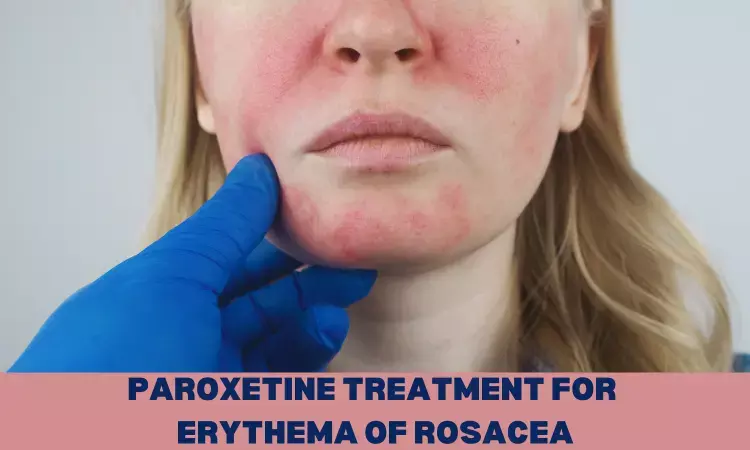- Home
- Medical news & Guidelines
- Anesthesiology
- Cardiology and CTVS
- Critical Care
- Dentistry
- Dermatology
- Diabetes and Endocrinology
- ENT
- Gastroenterology
- Medicine
- Nephrology
- Neurology
- Obstretics-Gynaecology
- Oncology
- Ophthalmology
- Orthopaedics
- Pediatrics-Neonatology
- Psychiatry
- Pulmonology
- Radiology
- Surgery
- Urology
- Laboratory Medicine
- Diet
- Nursing
- Paramedical
- Physiotherapy
- Health news
- Fact Check
- Bone Health Fact Check
- Brain Health Fact Check
- Cancer Related Fact Check
- Child Care Fact Check
- Dental and oral health fact check
- Diabetes and metabolic health fact check
- Diet and Nutrition Fact Check
- Eye and ENT Care Fact Check
- Fitness fact check
- Gut health fact check
- Heart health fact check
- Kidney health fact check
- Medical education fact check
- Men's health fact check
- Respiratory fact check
- Skin and hair care fact check
- Vaccine and Immunization fact check
- Women's health fact check
- AYUSH
- State News
- Andaman and Nicobar Islands
- Andhra Pradesh
- Arunachal Pradesh
- Assam
- Bihar
- Chandigarh
- Chattisgarh
- Dadra and Nagar Haveli
- Daman and Diu
- Delhi
- Goa
- Gujarat
- Haryana
- Himachal Pradesh
- Jammu & Kashmir
- Jharkhand
- Karnataka
- Kerala
- Ladakh
- Lakshadweep
- Madhya Pradesh
- Maharashtra
- Manipur
- Meghalaya
- Mizoram
- Nagaland
- Odisha
- Puducherry
- Punjab
- Rajasthan
- Sikkim
- Tamil Nadu
- Telangana
- Tripura
- Uttar Pradesh
- Uttrakhand
- West Bengal
- Medical Education
- Industry
Paroxetine effective and well-tolerated treatment of erythema of rosacea

China: A new study has found that paroxetine, a medication commonly used to treat depression and anxiety, may be an effective and safe treatment for patients with moderate-to-severe erythema of rosacea, published in the Journal of American Academy of Dermatology.
Erythema of rosacea is a condition that causes facial redness and small, red, pus-filled bumps. Middle-aged women with fair skin most commonly experience rosacea. It can be confused with acne or other skin conditions.
Paroxetine is a selective serotonin reuptake inhibitor, which is a type of antidepressant (SSRI). It is frequently used to treat depression, obsessive-compulsive disorder (OCD), panic attacks, anxiety, and post-traumatic stress disorder (PTSD).
The prospective Rosacea Refractory erythema trial was a multicenter, randomized, double-blind, placebo-controlled trial involving patients with moderate to severe erythema of rosacea. For a 12-week period, patients were randomly assigned (1:1) to either receive paroxetine or a placebo.
The study results were interpreted using the Clinical Erythema Assessment Score of 0, 1, or a ≥2-grade improvement from baseline at week 12.
The study had the following clinical takeaways:
- The proportion of patients who passed the Clinical Erythema Assessment at week 12 was significantly higher in the paroxetine group than in the placebo group (42.9% vs. 20.8%).
- Some secondary endpoints, such as flushing success and improvement in burning sensation and depression, were also met.
- The study also discovered that paroxetine was well-tolerated, with dizziness, lethargy, nausea, dyspepsia, and muscle tremors being the most commonly reported adverse events.
While the study had some limitations, such as only evaluating a single-dosage regimen of paroxetine within a 12-week study, the findings suggest that paroxetine may be a viable alternative treatment for patients with refractory erythema of rosacea who have limited treatment options.
According to Dr. Ben Wang, the study's lead author, “Further studies are needed to confirm these findings and to determine the optimal dosing and duration of treatment with paroxetine for erythema of rosacea.”
Reference:
Wang B., Huang Y., Tang Y. Zhao Z. Shi W., Jian D., Liu F. Gao Q. Wang P., Yang J., Li L., Xie H., Li J.; Paroxetine is an effective treatment for refractory erythema of rosacea: Primary results from the Prospective Rosacea Refractory Erythema Randomized Clinical Trial; Journal of American Academy of Dermatology; 2023.02.14; DOI: https://doi.org/10.1016/j.jaad.2023.01.044
Dr. Mahalakshmi Sivashankaran joined Medical Dialogues as an Intern in 2023. She is a BDS graduate from Manipal College of Dental Sciences, Mangalore Batch 2022, and worked as a Junior Resident at VMMC & Safdarjung Hospital at the Department of Dental Surgery till January 2023. She has completed a Diploma in Executive Healthcare management from the Loyola Institute of Business Administration, developing skills in Healthcare Management and Administration. She covers several medical specialties including Dental, ENT, Diagnostics, Pharmacology, Neurology, and Cardiology.
Dr Kamal Kant Kohli-MBBS, DTCD- a chest specialist with more than 30 years of practice and a flair for writing clinical articles, Dr Kamal Kant Kohli joined Medical Dialogues as a Chief Editor of Medical News. Besides writing articles, as an editor, he proofreads and verifies all the medical content published on Medical Dialogues including those coming from journals, studies,medical conferences,guidelines etc. Email: drkohli@medicaldialogues.in. Contact no. 011-43720751


